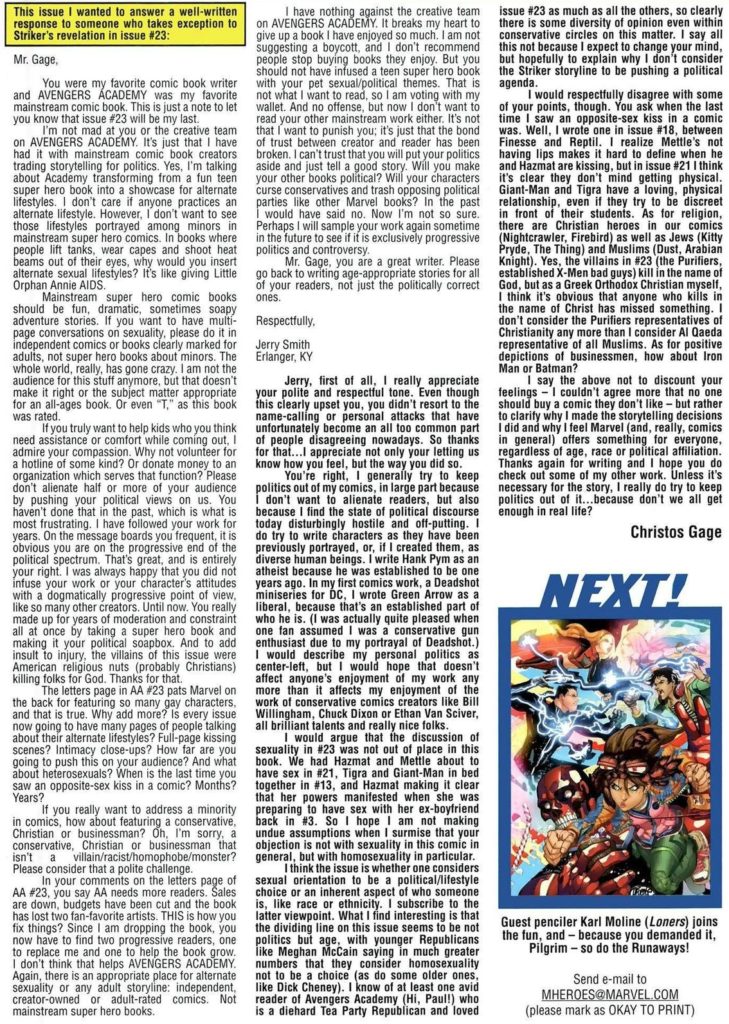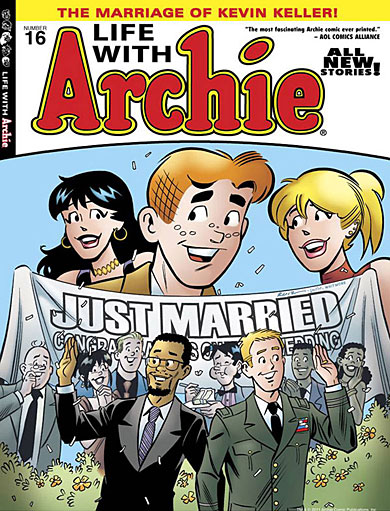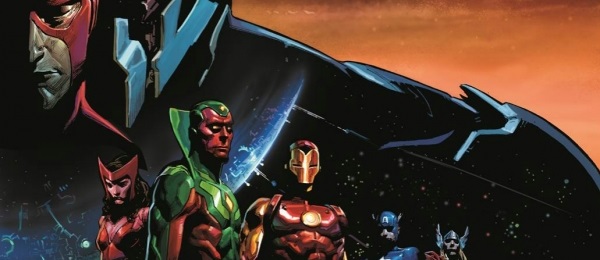Welcome to Comics Are My Religion, a look at theology through the lens of comic books. There are some basic ground rules about engaging in respectful dialogue about religion in this column.
Once in a while, things seem to align themselves for me in terms of coming up with a topic for this column. Allow me to share a few such things that led me to write this one:
1. I am an Episcopal priest, and in my denomination, we have been exploring the topic of sexuality for a long time. In fact, our first resolution made at our General Convention (our church-wide governing body) on the recognition of homosexuals as children of God was made back in 1976 (before I was born!). Many of you know that we have homosexual bishops and priests, and while not all Episcopalians are happy about this, our dedication to “stay at the table” with one another and keep talking is what makes us unique. This summer, our General Convention will be discussing same-sex blessings, as the last GC tasked a committee with exploring and creating a rite for such. I’m sure we’ll be in the news again on this issue as it’s a controversial move for a Christian church, who has historically shunned homosexuals, to take this step.
2. In light of this, I felt like my congregation of 120 families in rural Georgia needed to have an open conversation about sexuality and the upcoming General Convention. We have never talked about it openly before, even though we have a few homosexual couples in our congregation. My little church has a wide spectrum of opinion and experience on this issue, so I thought it was important to allow a non-anxious, non-judgmental, non-combative discussion about it, which we did a few weeks ago. We also explored the Scriptures that have been used to condemn same-sex behavior and wrestled with them. All along, our mantra has been “You Are Welcome Here,” no matter what your opinion may be. I have been in deep, thoughtful, and respectful conversation about the topic since we started this a few weeks ago.
3. Recently, in the letters page of Avengers Academy, a similar conversation was being held. Writer Christos Gage responded to a reader who was having a problem with Gage’s inclusion of a scene where the teenage character Striker came out about his homosexuality to a teammate.
Both Gage and the letter writer made valid points and held a respective dialog about the issue. The letter writer, Mr. Smith, echoed a sentiment I hear a lot down here in the South that they don’t mind what people do in the bedroom, they just don’t want it shoved down their throats.
4. In another bit of comics-related news, Archie Comics is making some mothers angry for the recent wedding of their gay character Kevin Keller. The organization the American Family Association, and their subsidiary One Million Moms, are calling for Toys ‘R’ Us to stop carrying the book on their shelves. This has made all kinds of headlines and is certainly not the respectful dialog that Gage and Smith exhibited in the letters column.
So it seems that this conversation is everywhere for me, and it’s an important conversation to have. My initial reaction, because I lean to the side that is more accepting and inclusive of all people no matter what their sexual orientation may be, is to get all riled up about the folks who may disagree with me. But I find that does little to help my case. Instead, I’m finding that the stories behind people’s opinions are the heart of discussing this issue. That’s one reason why creators are using our beloved medium as a way to tell such stories. As comic book readers, we all know how powerful stories can be, so it should not surprise us that the stories we hear of one another are important.
At one of our sessions at church, a man stood up and told his story of how he was as homophobic as you could get. He went to a conservative church, is a political conservative, and lived in a conservative town. Then his son came out to him. He wrestled for a long time with this news and struggled with whether or not to stick with his opinions or his love for his son. He chose to love his son.
A woman stood up and told how her last partner committed suicide because her religious family would not accept her and condemned her to hell. She and her current partner recently got married in Washington, D.C., but the pain of losing her former companion weighed heavily on her.
However painful, yet redemptive these stories are, they represent only one side. I spoke to another man this week who told me about his daughter, whose husband cheated on her with another man, and then left her. They have a daughter together and so this completely devastated the entire family. I could have easily come up with a defense for his gay former son-in-law, but instead I just listened to this man and the pain he felt over it. While I didn’t agree with his position on homosexuality, I could understand how his experience had shaped his opinion, just as any of our experiences shape our opinions. Instead, I told him how sorry I was that happened to him and gave him a hug.
All of us have a story to tell around homosexuality. It’s easy, especially on the impersonal internet, to throw hate back and forth from either side, whether it’s gay-bashing or calling those who don’t accept homosexuals “ignorant” or “homophobic.” It’s hard to tell stories in our Twitter feed or Facebook status, and easier to launch a sweeping opinion. But if we can learn to hear the story behind one’s opinion, we may not agree, but we may understand. We may see that we share similar joys or pains even though we come from different angles.
This is the gift that being lovers of storytelling can do to enable us to learn more about one another and find some common ground.
Jeff Jackson
jeff@comicattack.net
@FrJeffJackson




